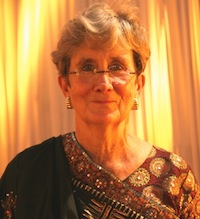
Linda Daly has written a beautiful piece in the Huffington Post on her recent trip to the refugee camps along the Chad border, where those who have fled the ongoing genocide in Darfur presently huddle. It is entitled, “The Dirt of Africa.” You should read it.
The essay drew strong praise for its lovely prose and its sensitivity; but it garnered equally strong condemnation for its punch line that “Africa needs healing and it is the world’s responsibility to take care of that.” Critics charge that Africa’s problems are of Africa’s making, and that the “international community” has no “responsibility” to clean up the mess. The criticism is both facile and unfair.
The primary responsibility of any government is to handle the welfare of its own people. Interventionists and isolationists in America have debated for two centuries the extent to which helping to resolve problems on foreign soil bear at all on the welfare of American citizens; and in truth, various situations are variously compelling to both camps. In this narrow reading of the role of government, neither America nor any other country bears a duty to help end the genocide in Sudan. But if we require more of our countries than simply to advance our material interests, Ms. Daley’s language of responsibility is not too strong.
Governments are no more that the administrative tools of their people. We Americans – “We, the people” – particularly enshrine this democratic concept. So if our governments are, in effect our proxies, the important question to ask is: do we as individuals – and non-Africans – have an obligation to act when an African government slaughters its own people? If we have a duty to act, then it is splitting of hairs to say that our government has no such duty. The American government, for one, has never been shy about acting on mere moral authority, presumably derived from the collective will of its people.
I believe that only the most selfish, self-centered among us would seriously argue that we personally, as individuals, do not have a moral obligation to resist the tragedy that has been unfolding in Darfur for the past two-plus years. The fact that I am not the cause of the crime does not entitle me a free pass to sit by and watch it happen.
This is why governments are such useful things. They allow us to act collectively in ways that it is impossible or impracticable for us to act as individuals. Perhaps you and I cannot stop the killing, rape, and other brutality in Darfur; but our government sure as hell could, if it chose to.
Wealth-chasing Americans tend to look out for themselves and their immediate families, and pretend that the rest of the world’s problems are not their concern. Most of us have contributed nothing to the actual building of the country’s greatness, and yet we wrap ourselves in the full regalia of American exceptionalism. And so we look inward, to our narrow, self-interested concerns, blind to the fact that our comforts in a land of material privilege and opportunity are largely accidents of birth and geography.
Imagine for a moment that you are not an American (or an Indian, or a member of whatever broadband-dependant culture you happen to call your own); instead imagine yourself a Zagauwa or Fur, living in the desolate semi-wilderness of Darfur, and watching your family and friends being slaughtered by a government that you didn’t elect and, frankly, has never really figured into your barely-iron-age way of life. Wouldn’t you hope that someone with the power to stop the killing would intervene? Wouldn’t you feel that the mere gift of power would obligate the intervention?
If you feel that you somehow earned the parents that conceived you into a life of privilege, then this exercise will have been fairly meaningless. You believe that you are entitled to the life you have, and it is silly to imagine yourself as someone you are not, and never could be. It also follows that you will feel perfectly justified in turning a blind eye to the plight of those who have somehow earned their fates.
If, on the other hand, you believe as I do that you could just have easily been born elsewhere – and, in fact, that the notion of selfhood, though important, is no more important than the concept of a shared humanity – then you will perhaps be able to make the mental leap and put yourself in the shoes of the people of Darfur. And you will understand that we have a responsibility to help whichever of us is in need, not because we are Americans, but because we are humans.
Shouldn’t we demand that our government act to fulfill our collective moral obligations in Darfur? That’s what governments are for. To use Ms. Daly’s language: it is their responsibility.





















Recent Comments